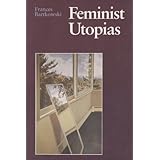In The Book of the City of Ladies, Christine
de Pisan imagines she is transported into another world, a world in which women
have rights they never had before. Given the year she penned her story was
1405, some of her ideas of freedom are limited, but they were a step in a much
bigger direction.
Pisan starts her
story by recalling male-penned stories and articles, all with one thing in
common: their negative view of women. As the criticism and outright derision
happens so often, Pisan shares her confusion. Surely, all of the men with their
view on women couldn’t be wrong, especially since men of 1405 were allowed
higher education and women were not, therefore they were considered to be smarter.
A large collection of intelligent men could not be wrong, Pisan believed. It is
only later when Pisan meets the three Ladies (Lady Reason, Lady Rectitude, Lady
Justice) that she rationalizes their
views as wrong, citing details as to why men believe women to be inherently
stupid and immoral (men are jealous, men are blind). One of the Lady’s puts
things into perspective for Pisan through use of comparison. Men believe Eve,
the first woman, was evil and she poisoned the whole of women for every generation
to come. If men believe women to be inherently evil, why is it they also
believe education will corrupt women? How can women be corrupted further if
they are born corrupt? Lady Reason sums it up for Pisan, “Here you can clearly see that not all opinions of men are based
on reason and that these men are wrong” (para. 2).
Other
parts of Pisan’s story tell of inventions and advantages by women, and other
causes of misogyny.
While
Pisan’s allegories strive to understand equality for women, there is still a
patronizing tone to them throughout, almost an echo of the patriarchy still
holding Pisan (and all women) back. She spoke of equality and education for
women, but at the same time, the tone of her writing suggested she could never
imagine a woman not being defined as a “lady” and a man not be defined as a
“gentleman”. In Pisan’s equal world, woman probably would be educated but under
male-supervision, and she could probably not have imagined women carrying out
roles men traditionally held, such as going to war, being doctors, lawyers, and
scientists. Again, in 1405, women had very little rights, and it is arguable
that Pisan’s story was realistic in its outlook.



